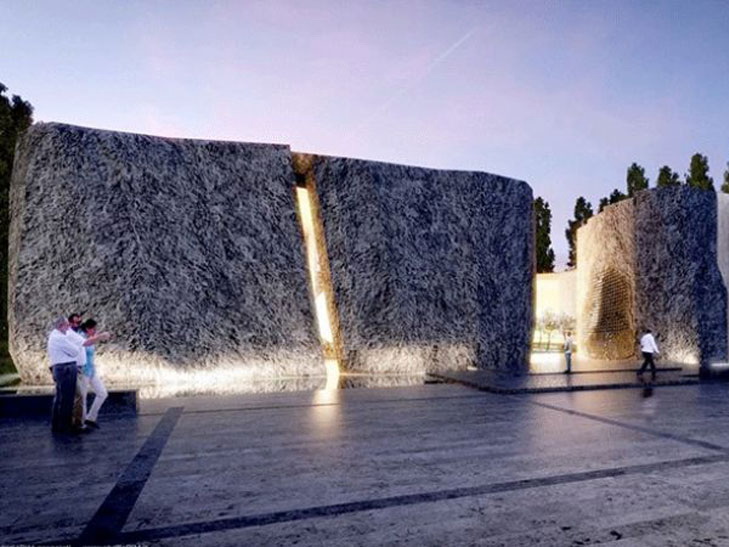Will Pashinyan punish the perpetrators of the Khojaly Massacre? – Modern Diplomacy

By Dr. Javid Valiyev
On October 16 th the Armenian Prime Minister Nikol Pashinyan announced his resignation, paving the way for a snap parliamentary elections to be held on December 10th. The move is seen as a manoeuvre to return to Prime Minister’s Office with his party having the majority in the parliament, thus acquiring even more dominant position in the political life of Armenia.
While the support of the ordinary people was instrumental in Pashinyan’s becoming the prime minister, he did not achieve to gain full political control in the country as his government has been at logger heads with the majority of lawmakers in the parliament, most of whom are representing the Republican Party. Thus, during the five-months period of his term, Pashinyan’s main objective was to reduce the influence of the Nagorno-Karabakh`s Armenian clan, which has had for years controlling positions in the Republican Party and Armenian politics. Despite their prevalent status in all the areas in the country including politics, military and business during the last 20 years, the representatives of the Nagorno Karabakh`s Armenian clan gradually lost their credibility among the population because of the wrong policies conducted during recent years. The popular uprising in April, therefore, was not only against Serzh Sargsyan`s personality,but also against the entire Nagorno Karabakh`s Armenian clan, which had put doubt on the future of Armenia. Realizing the clan’s influence in the country has been rapidly exhausted among the population, Pashinyan became determined to fight them.
Pashinyan came to power by overthrowing the former President Serzh Sargsyan, one of the most important representatives of the Nagorno Karabakh`s Armenian clan. Samvel Babayan, one of the important representatives of the aforementioned clan and of the military dictatorship in Armenia, was imprisoned during Pashinyan’s five-month period because of having illegally brought Igla missiles to Armenia. During Pashinian’s term, Robert Kocharian, who ruled Armenia between 1998 and 2008, was arrested within the campaign to fight against corruption and bribery. According to Pashinyan, these figures are the main culprits of the situation in Armenia. Indeed, those who closely follow up Armenia are well aware that the current state of grievances of the citizens of the Republic of Armeniais is the result of the state capture by the Karabakh clan, which has led to serious problems between the Armenians of Armenia and the Armenians of Karabakh.
The important point here is that Nagorno Karabakh`s Armenian clan not only conducted poor internal policies, but also followed policies which caused Armenia to be isolated in the region, establishing belligerent relations with the neighboring states. In 1998, representatives of Karabakh`s Armenian clan, Robert Kocharian and Serzh Sargsyan, seized power by forcing president Levon Ter-Petrosyan to resign, who believed that there would be no promising future for Armenia without the resolution of the Nagorno Karabakh problem. During the last 20 years, the Karabakh clan played to nationalist and populist expectations in Armenia and systematically marginalized the politicians who attempted to give positive messages in the direction of solving the problem, essentially preventing any ways for the Armenian society to lean towards supporting the peace agreement. The group defined as the Nagorno Karabakh`s Armenian clan under the leadership of Sarkisian and Kocharian did not only substantially damage the future of the citizens of Armenia through poor internal policies, but also committed a genocide against Nagorno-Karabakh`s Azerbaijani population during the Nagorno-Karabakh war. Through the brutal massacres and genocides against the civilian population residing in the region between 1988-1994, the Karabakh clan seriously damaged peace prospects by encouraging hatred and enmity among the peoples of the region.
During his interview with the British journalist Thomas de Wall, the former president of Armenia Serzh Sargsyan described what he had done against the civilian population in the region during the Nagorno-Karabakh War, emphasizing that:”Before Khojaly, the Azerbaijanis thought that … the Armenians were people who could not raise their hand against the civilian population. We were able to break that [stereotype].”Referring to the question of why Armenians killed civilians, Svante Cornell, an American expert in the region, clarified the following: “The Armenian side had two important objectives: firstly, to force the civilian population to abandon its territory in a way that it would never come back; and to break the resistance of civilians against the Armenian occupation”. As a result, the remaining population of Nagorno Karabakh and of the surrounding seven districts left their homes because of the the fear that similar atrocities would be repeated.
Human Rights Organization “Memorial” prepared a report on the incident immediately after the events in Khojaly in 1992 and accused the armed Armenian clan of Karabakh in the calamities of the night of 25-26th of February signified by the killings of 613 civilians. The newspapers of the period shared the same view. In 1997, the president of the UN Human Rights Organization Holy Cartner confirmed this statement to Armenia`s Minister of Foreign Affairs. In his official letter to Minister of Foreign Affairs of Armenia, Cartner emphasized: “We hold Karabakh Armenians responsible for the death of civilians in Khojaly.” Until now 15 US States, parliaments of the seven states in the world and one international organization have recognized Khojaly as genocide.
In fact, it is not a secret to anyone who perpetuated the massacre in Khojaly. Dmitri Saveliev, representative of the Duma of the Russian Federation, said in his opening speech of the Khojaly genocide memorial: “Those who did the Khojaly genocide were still not punished. We should all work together to punish those responsible for the genocide”. Of course Saveliev was right. Right after the Second World War, the Nuremberg Trials were set up to punish those who committed genocide against the Jewish people. Similar measures were also taken against those who committed atrocities in Srebrenica. Unfortunately, perpetrators of Khojaly are still unpunished despite the fact that 26 years have passed since then.














